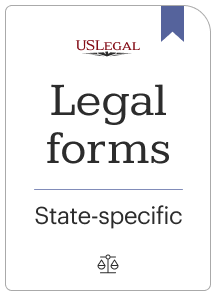

This form is used when the Owners, by unanimous consent, desire to amend the Operating Agreement.
A Georgia Amendment to Operating Agreement is a legal document that allows members of a Georgia Limited Liability Company (LLC) to make changes or modifications to the initial Operating Agreement. It provides a formal process for members to alter certain provisions of the agreement that have become outdated or no longer serve the best interest of the company. The amendment allows the LLC members to adjust various aspects of the operating agreement, including but not limited to changes in management structure, capital contributions, profit and loss allocations, distributions, decision-making authority, and dispute resolution. By making these modifications, the amendment helps the members to adapt to the changing needs and circumstances of their business. There are different types of Georgia Amendment to Operating Agreement, depending on the specific changes being made. Some common types include: 1. Management Amendment: This type of amendment allows members to modify the management structure of the LLC. It may involve changes in the roles and responsibilities of managers, the addition or removal of managers, or the introduction of a different management system such as a board of directors. 2. Capital Contribution Amendment: This amendment permits members to alter the capital contributions required from each member. It can be used to increase or decrease the initial capital contributions or to change the method of contribution. 3. Profit and Loss Amendment: This type of amendment enables members to modify the allocation of profits and losses among the LLC members. It can be utilized to adjust the distribution of profits based on a member's ownership percentage or to introduce a different method of allocation. 4. Distribution Amendment: This amendment allows members to adjust the distribution of profits among LLC members. It can be used to change the timing or frequency of distributions or modify the formula used to calculate distributions. 5. Voting Rights Amendment: This type of amendment enables members to alter the decision-making authority within the LLC. It may involve changes in voting rights, super majority requirements, or the introduction of different voting procedures. 6. Dispute Resolution Amendment: This amendment permits members to modify the dispute resolution process outlined in the operating agreement. It can be used to introduce alternative dispute resolution methods such as mediation or arbitration or to make changes to the jurisdiction and venue in case of legal proceedings. It is crucial for LLC members in Georgia to follow the designated process for creating and executing an amendment, which typically entails drafting the proposed changes, getting approval from majority or unanimous consent, and properly executing the amended agreement. Members should consult with legal professionals specializing in business law to ensure compliance with all relevant Georgia laws and regulations when creating and implementing an amendment to their Operating Agreement.
A Georgia Amendment to Operating Agreement is a legal document that allows members of a Georgia Limited Liability Company (LLC) to make changes or modifications to the initial Operating Agreement. It provides a formal process for members to alter certain provisions of the agreement that have become outdated or no longer serve the best interest of the company. The amendment allows the LLC members to adjust various aspects of the operating agreement, including but not limited to changes in management structure, capital contributions, profit and loss allocations, distributions, decision-making authority, and dispute resolution. By making these modifications, the amendment helps the members to adapt to the changing needs and circumstances of their business. There are different types of Georgia Amendment to Operating Agreement, depending on the specific changes being made. Some common types include: 1. Management Amendment: This type of amendment allows members to modify the management structure of the LLC. It may involve changes in the roles and responsibilities of managers, the addition or removal of managers, or the introduction of a different management system such as a board of directors. 2. Capital Contribution Amendment: This amendment permits members to alter the capital contributions required from each member. It can be used to increase or decrease the initial capital contributions or to change the method of contribution. 3. Profit and Loss Amendment: This type of amendment enables members to modify the allocation of profits and losses among the LLC members. It can be utilized to adjust the distribution of profits based on a member's ownership percentage or to introduce a different method of allocation. 4. Distribution Amendment: This amendment allows members to adjust the distribution of profits among LLC members. It can be used to change the timing or frequency of distributions or modify the formula used to calculate distributions. 5. Voting Rights Amendment: This type of amendment enables members to alter the decision-making authority within the LLC. It may involve changes in voting rights, super majority requirements, or the introduction of different voting procedures. 6. Dispute Resolution Amendment: This amendment permits members to modify the dispute resolution process outlined in the operating agreement. It can be used to introduce alternative dispute resolution methods such as mediation or arbitration or to make changes to the jurisdiction and venue in case of legal proceedings. It is crucial for LLC members in Georgia to follow the designated process for creating and executing an amendment, which typically entails drafting the proposed changes, getting approval from majority or unanimous consent, and properly executing the amended agreement. Members should consult with legal professionals specializing in business law to ensure compliance with all relevant Georgia laws and regulations when creating and implementing an amendment to their Operating Agreement.